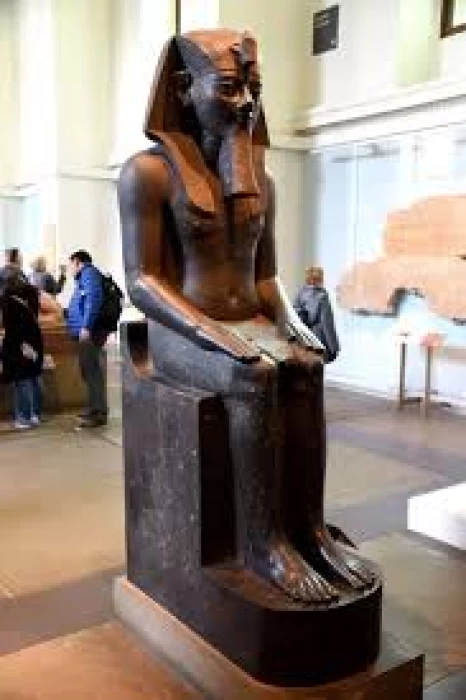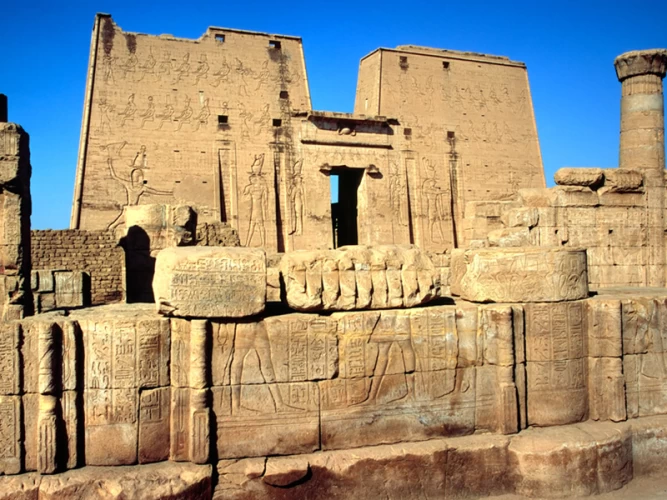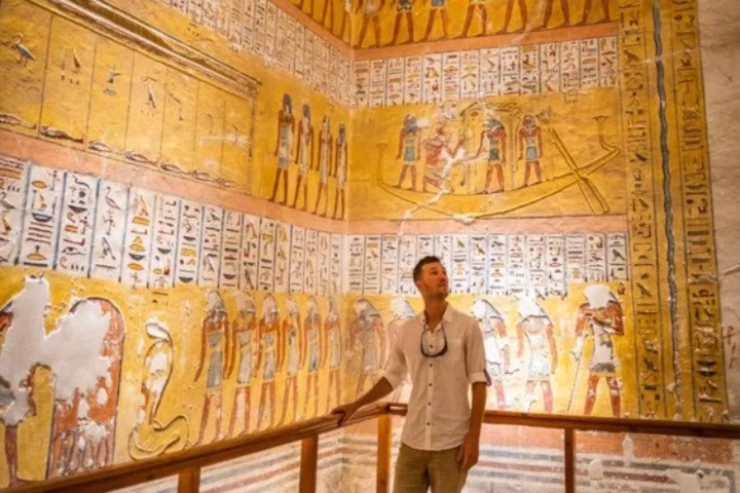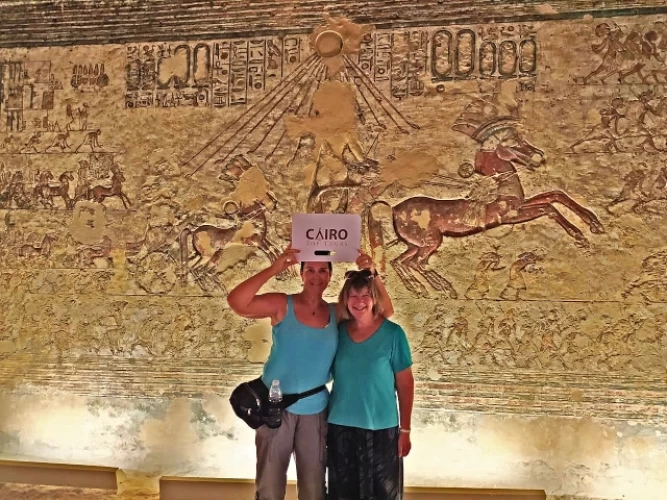
King Amenhotep III
King Amenhotep III
Amenhotep III (c. 1386-1353 BC) was the ninth king of the 18th dynasty of Egypt. It is also known as Nebmaâtrê, Amenophis III and Amāna-Ḥātpa, all of which are related to the concept of satisfaction of the god Amon or, in the case of Nebmaâtrê, to the ideal of balance satisfied, ma'at (or ma'at).
He was the son of Pharaoh Touthmosis IV and his wife Mutemuia, the husband of Queen Tiyi, the father of Akhenaton and the grandfather of Tutankhamun and Ankhesenamon. His greatest contribution to Egyptian culture was to maintain peace and prosperity, which enabled him to devote himself to the arts.
Many of the most impressive structures in ancient Egypt were built under his reign, and through his military campaigns he not only strengthened the borders of his country but also extended them. He ruled Egypt with Tiyi for 38 years until his death. Amenhotep IV, later known as Akhenaton, succeeded him.
Tutmosis IV, the father of Amenhotep, had given his son an enormously powerful, wealthy, and expansive empire. According to Egyptologist Zahi Hawass, Amenhotep III was born into a world dominated by Egypt. His vassals bowed before the strong leaders of the Two Lands [Egypt] and his coffers were brimming with riches" (27). When he succeeded to the kingdom and wed Tiyi in a royal ceremony, he was just twelve years old. The fact that Tiyi was given the title of Great Royal Bride right away after Amenhotep and his wife were married is a noteworthy part of their relationship. Amenhotep's mother Mutemouia had never been granted this title, so Tiyi effectively held a higher position in court matters than the king's mother.
After his marriage, the king undertook to continue his father’s policy and implement new building programs throughout Egypt. Master of diplomacy, he put other nations at his mercy with sumptuous gifts in gold, so that they would bend to his wishes, which they invariably did. His generosity to friendly kings is well established and he maintained fruitful relations with the surrounding nations.
Not only was he a skilled hunter and sportsman, but he also claimed in an inscription that "from the first to the tenth year [of his reign], His Majesty killed 102 wild lions with his own arrows" (Nardo, 19). Bunson (18) notes that Amenhotep III was a capable military leader who "probably led his military commanders in Nubia, or participated in a campaign there, and he had inscriptions made to commemorate this expedition."


















